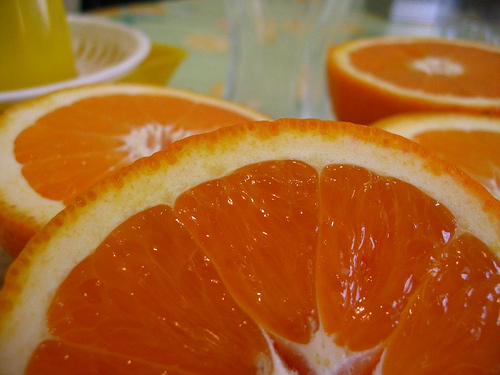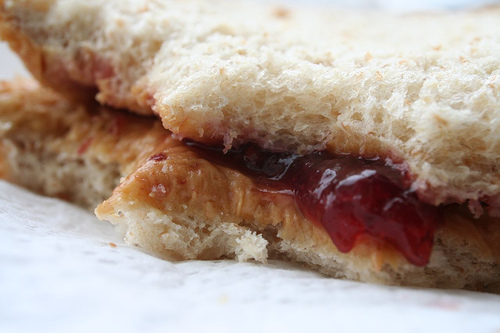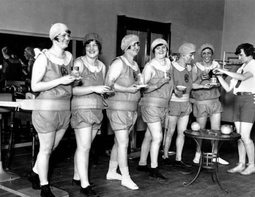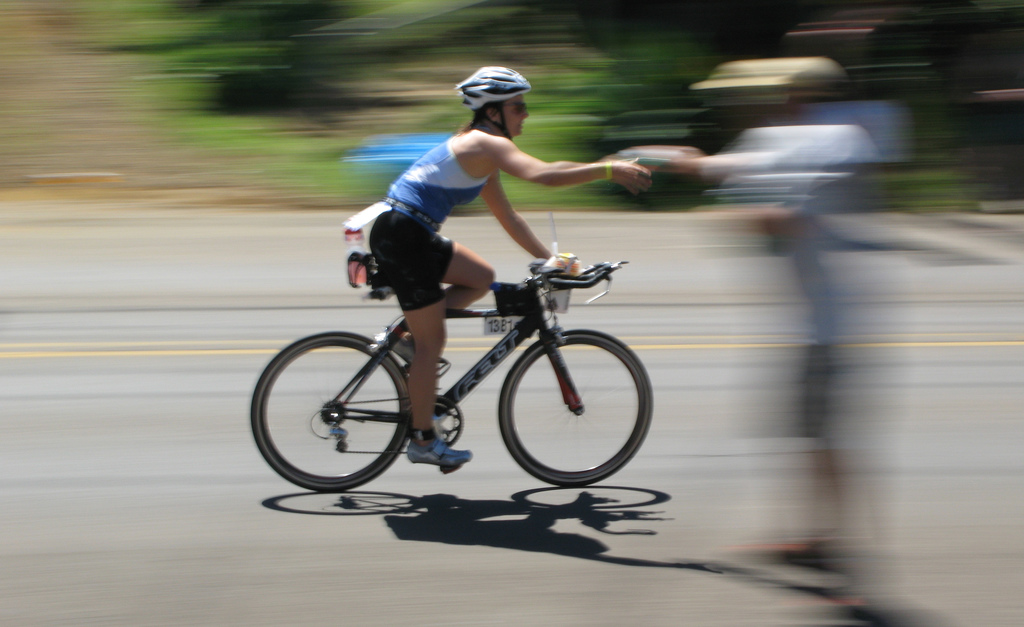12 real foods for real results: Insider tips from top sports nutritionists

Do you have a pantry full of gels, bars, powders, and neon-colored fluids? Sports fuels (engineered foods) can have a valuable place in training and racing, and are a mainstay of professional athletes and weekend warriors alike.
Slurping down ooze from a foil pouch, however, can never match the joy of nibbling on a soft peanut butter and jelly sandwich. And why gnaw your way through an engineered bar when you can bite into a juicy orange or potassium-rich banana which are nature’s versions of prepackaged sports fuels.
If your sports nutrition is in a rut or if your training is suffering, perhaps it’s time for you to give your taste buds a break. Here are 12 top food choices from sports nutrition experts who practice what they preach. Try these real foods for snacks, during an event, or for recovery, and maybe you’ll see some real results!
- Whole grain fig bars, whole grain crackers, graham crackers: Enjoy with peanut butter for a filling snack.
- Apples, oranges, bananas: Portable, available all year.
- Cereal or granola bars: Less expensive than sports bars.
- Trail mix: Tailor a blend of nuts, dried fruit, and cereal to fit your personal preferences.
- Instant oatmeal: Make with low-fat milk for a quick, inexpensive, and healthy snack.
- Watermelon and cantaloupe: Nutrient dense, available at most salad bars.
- Candy such as Tootsie Rolls, Jolly Ranchers, Gummi Bears, Swedish Fish, and jelly beans: Treats to savor in your mouth during long events.
- De-fizzed soft drinks: Inexpensive source of caffeine and carbohydrate during long events.
- Sweet potatoes: Pop them in the microwave for a quick pre-exercise or post-exercise snack.
- Fruit smoothies: Great for recovery, cheaper than canned shakes.
- Chocolate milk: Great recovery beverage, available in single serving boxes that don’t require refrigeration.
- Peanut butter and jelly sandwiches: Cult favorite, perfect for a snack, during some events, and as a recovery food.
Try incorporating some of these real foods into your training regimen. But keep in mind that just as you train your muscles, you may need to train your digestive system. If you have a big event coming up, test potential new foods ahead of time. Don’t make the common mistake of picking up food samples at an Expo the day before a key race and then trying them the next day. (Would you lace up a brand new pair of running shoes the day of a marathon?)
Additional tips from the experts:
- “Pros develop a plan weeks or months ahead of priority races. They then experiment in a less important ‘B grade’ race under the same intensity and environmental conditions as their target race.” – Ellen Coleman, MA, MPH, RD, CSSD, author of Ultimate Sports Nutrition and Eating for Endurance; 2-time finisher of the Ironman Triathlon.
- “The goal of consuming foods during your training or racing is to minimize dehydration and carbohydrate depletion. To accomplish this, carbohydrates should be consumed every 15 to 20 minutes. You should never wait until you are hungry or thirsty before you eat or drink.” – Kathy Zadwadzki, MS, contributing author, Food for Fitness: Eat Right to Train Right; USAC Level I Coach; Licensed Sports Nutritionist, National Association of Sports Nutrition.
- “You haven’t finished your training until you’ve refueled.” – Nancy Clark, MS, RD, CSSD, nutrition columnist and author of numerous books, including Sports Nutrition Guidebook.
- “Don’t overlook classic foods, such as PB & J, which has the perfect ratio of carbohydrate to protein.” – Lynn Umbreit, MS, RD, LD, Past-Chair of the WM (Weight Management) and SCAN (Sports, Cardiovascular & Wellness Nutritionists) dietetic practice groups of the American Dietetic Association; finisher of over 50 marathons.
 The field of sports nutrition is continually evolving based on scientific research and ‘field testing.’ There are numerous books, formulas, and philosophies. Pro athletes spend an enormous amount of time and energy adjusting and readjusting their nutritional regimens.
The field of sports nutrition is continually evolving based on scientific research and ‘field testing.’ There are numerous books, formulas, and philosophies. Pro athletes spend an enormous amount of time and energy adjusting and readjusting their nutritional regimens.
The foods that work best for you may not come in a package with an expiration date three years from now. These top notch sports nutritionists confess to having favorite real foods that they indulge in before or after big events. Some of their “off-the-record” splurges? Baked potato chips, beef jerky, and pizza and beer.
What’s your favorite training food? What’s your favorite splurge?
Learn more:
- Boosting athletic performance with beetroot juice, nitrate and spit. Research shows beetroot juice consumption can improve athletic performance. Learn why it works, what foods have a similar effect, and what the potential drawbacks are.
- Carbohydrates and sports performance: rinse, repeat, win? Mounting evidence suggests we have receptors (both sweet and non-sweet) in our mouths that are sensitive to carbohydrates, and that when triggered, activate areas in our brains associated with reward. Thus swishing a carbohydrate-containing solution around in your mouth may improve exercise performance.
- Are humans designed to be endurance runners? Yes! Learn about key features that enable humans to excel at running.
- 10 Tips for exercising in the heat. It’s important to keep an eye on the color of your urine, as well as listen to your body and keep an eye on your friends. Stay in the game with these ten tips to beat the heat.
- The 7 Habits of Highly Effective Weight Loss Maintainers
Photo credits











[…] 12 real foods for real results: Insider tips from top sports nutritionists Share and Enjoy: […]
[…] 12 real foods for real results: Insider tips from top sports nutritionists […]
[…] 12 real foods for real results: Insider tips from top sports nutritionists […]
[…] 12 real foods for real results: Insider tips from top sports nutritionists […]